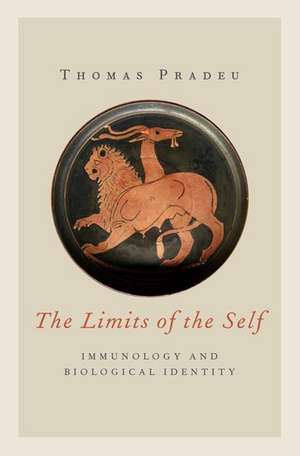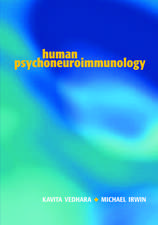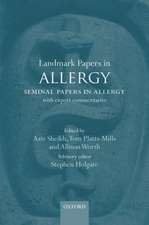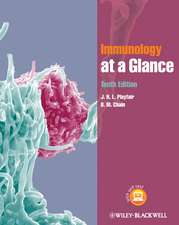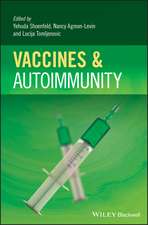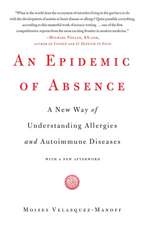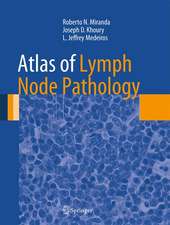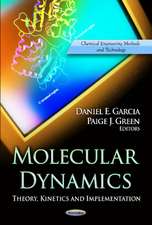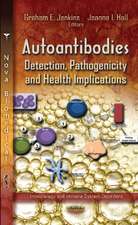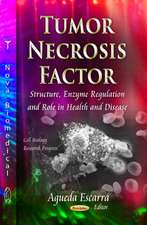The Limits of the Self: Immunology and Biological Identity
Autor Thomas Pradeu Traducere de Elizabeth Vitanzaen Limba Engleză Hardback – 22 mar 2012
| Toate formatele și edițiile | Preț | Express |
|---|---|---|
| Paperback (1) | 278.46 lei 31-37 zile | |
| Oxford University Press – 31 ian 2019 | 278.46 lei 31-37 zile | |
| Hardback (1) | 591.43 lei 31-37 zile | |
| OUP USAOUP USA – 22 mar 2012 | 591.43 lei 31-37 zile |
Preț: 591.43 lei
Preț vechi: 790.08 lei
-25% Nou
Puncte Express: 887
Preț estimativ în valută:
113.18€ • 122.90$ • 95.07£
113.18€ • 122.90$ • 95.07£
Carte tipărită la comandă
Livrare economică 11-17 aprilie
Preluare comenzi: 021 569.72.76
Specificații
ISBN-13: 9780199775286
ISBN-10: 0199775281
Pagini: 320
Dimensiuni: 211 x 147 x 33 mm
Greutate: 0.46 kg
Editura: OUP USAOUP USA
Colecția OUP USAOUP USA
Locul publicării:New York, United States
ISBN-10: 0199775281
Pagini: 320
Dimensiuni: 211 x 147 x 33 mm
Greutate: 0.46 kg
Editura: OUP USAOUP USA
Colecția OUP USAOUP USA
Locul publicării:New York, United States
Recenzii
... anyone interested in the fantastic and bewildering world of biomolecular recognition will be richly rewarded by this book.
Thomas Pradeu has joined the small cadre of those studying the philosophical significance of immunology and assumed the task of rectifying this neglect. In a text that provides an up-to-date summary of the key features of immunological theory and places those findings into a philosophical context that has framed previous debates, he has made a noteworthy contribution to immunology's abundant theoretical literature, which enjoys a richness almost unique among the physiological sciences.
Thomas Pradeu's The Limits of the Self provides a precise account of biological identity developed from the central concepts of immunology. Yet the central concepts most relevant to this task (self and nonself) are themselves deemed inadequate, suffering from ambiguity and imprecision. Pradeu seeks to remedy this by proposing a new guiding theory for immunology, the continuity theory. From this, an account of biological identity is provided in terms of uniqueness and individuality, ultimately leading to a defense of the heterogeneous organism as expressing the highest degree of individuality.
Pradeu offers a new perspective of evolutionary individuality with insights that challenge the current discourse. Overall, I recommend this book to philosophers of biology and science who are interested in the notion of individuality, as well as to biologists concerned with the nature of individual organisms.
A profound examination of the ways in which our current understanding of the immune system can shed light on the metaphysical questions of identity and selfhood. It is notable in its impressive grasp of a wide range of literature both on the history and the current theory of immunology, engaging with real cutting edge science and demonstrating a detailed understanding of the relevant science and scientific practices. Its accessible and original discussion makes a distinctive and important contribution to the expansion of the scope of philosophy of biology, and should be of considerable interest well beyond the philosophy of the biomedical sciences.
There are several aspects of the book that are appealing for philosophers of biology in particular. ... Pradeu has produced a hybrid book with many strengths and great coherence.
Thomas Pradeu's The Limits of the Self represents a sophisticated analysis of how the self can be defined in terms of the immune system and how this strictly biological view can inform the philosophical concept...Pradeu's Continuity Theory is arguably the clearest alternative to Burnet's self/non-self model.
Thomas Pradeu has joined the small cadre of those studying the philosophical significance of immunology and assumed the task of rectifying this neglect. In a text that provides an up-to-date summary of the key features of immunological theory and places those findings into a philosophical context that has framed previous debates, he has made a noteworthy contribution to immunology's abundant theoretical literature, which enjoys a richness almost unique among the physiological sciences.
Thomas Pradeu's The Limits of the Self provides a precise account of biological identity developed from the central concepts of immunology. Yet the central concepts most relevant to this task (self and nonself) are themselves deemed inadequate, suffering from ambiguity and imprecision. Pradeu seeks to remedy this by proposing a new guiding theory for immunology, the continuity theory. From this, an account of biological identity is provided in terms of uniqueness and individuality, ultimately leading to a defense of the heterogeneous organism as expressing the highest degree of individuality.
Pradeu offers a new perspective of evolutionary individuality with insights that challenge the current discourse. Overall, I recommend this book to philosophers of biology and science who are interested in the notion of individuality, as well as to biologists concerned with the nature of individual organisms.
A profound examination of the ways in which our current understanding of the immune system can shed light on the metaphysical questions of identity and selfhood. It is notable in its impressive grasp of a wide range of literature both on the history and the current theory of immunology, engaging with real cutting edge science and demonstrating a detailed understanding of the relevant science and scientific practices. Its accessible and original discussion makes a distinctive and important contribution to the expansion of the scope of philosophy of biology, and should be of considerable interest well beyond the philosophy of the biomedical sciences.
There are several aspects of the book that are appealing for philosophers of biology in particular. ... Pradeu has produced a hybrid book with many strengths and great coherence.
Thomas Pradeu's The Limits of the Self represents a sophisticated analysis of how the self can be defined in terms of the immune system and how this strictly biological view can inform the philosophical concept...Pradeu's Continuity Theory is arguably the clearest alternative to Burnet's self/non-self model.
Notă biografică
Thomas Pradeu is Senior Researcher at the CNRS & University of Bordeaux (France). From 2008 to 2014, he was Associate Professor in Philosophy of Science at Paris-Sorbonne University. He is also Associated Researcher at IHPST Paris. His research deals mainly with the definition of the organism, the notion of biological individuality, and the concept of "self" as it appears in today's immunology.
